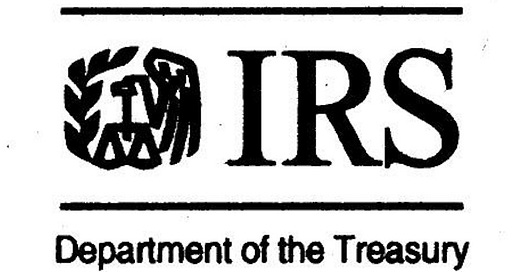A recent New York Times postmortem of the NY-3 special Congressional Election, where old Democratic warhorse Tom Suozzi bested law-and-order Democrat-turned-Republican Mazi Pilip, discussed the strange (to them) phenomenon of people voting against their economic interests. As in working class types supporting "tax cuts for the rich" Republicans.
There are very few canards in the political sandbox that rankle me more than "tax cuts for the rich." It’s not only divisive, it’s grossly misleading.
Fact is, "the rich" pay more in income tax, as a percentage of their income and as a share of total income taxes paid, than every other income segment.
And not by a little. The average federal tax rate for the top 1% is 26.0%, for the top 5% is 22.4%, and for the top 10% is 20.3%.
The bottom 50%, on the other hand? 3.1%.
Note that again. The bottom half of earners in America, i.e. people whose adjusted gross income (i.e. after deductions) is $42K or less, contribute just 3.1% on average to the federal coffers. That’s an average per household of $504.
If you pay almost no income tax, how much can your income tax be cut?
Meanwhile, the average 1%er pays over $450K in income taxes every year.
Those taxes on the rich represent a massive, as in $2 trillion, redistribution from the upper 40% of Americans to the lower 60%. Yet, we hear constant plaints about how the redistribution is insufficient, or that the rich aren’t taxed enough.
We can debate whether it's proper for society's successful to support the less successful. We can argue about the propriety of progressive taxation (and for the record, America's tax code is far more progressive than most of Europe's). We can argue about whether it’s right that so many pay so little. But we cannot, if there is to be honest discourse, allow the "tax cuts for the rich" trope to go unchallenged.
Nor can we abide the other line of cat-vomit I see so often:
Paying for tax cuts.
Those four words convey a false and toxic notion: that a portion of your income belongs to the government, so that when the government decides to let you keep a bit more of the fruit of your labor, that bit needs to be "paid for" by pulling money from elsewhere.
A friend pointed out that more and more people are losing the connection between government spending and taxation. He proposed a thought experiment - a pool assessing the reaction to these two phrases:
Government should cancel all student loans.
Taxpayers should pay off all student loans.
Would we see different results? He thinks so and I agree.
Big Government and its apologists are all too happy to perpetuate the myth that the fruit of individuals' labor belongs to the government first. They’ll never say so, because such an admission would be tantamount to declaring a desire for the US to become a communist nation, but if the government is subconsciously viewed as having its own money, and not just what it has taken (at gunpoint) from those who earned it, the government is less likely to be criticized for misuse, abuse, and recklessness.
It's a trap, and the only way to avoid it is to call it out wherever you see it. It's your money, not the government's. It's your income, not the government's. Taxation can only be considered morally legitimate when what is taken is used for services that benefit the taxpayers. When it's used as part of a massive wealth transfer, it violates all premises of individual liberty and sovereignty, and makes slaves out of us all.
Regular readers might recall I've used the same wordplay in today's title in the past.
All Your Vote Are Belong To Us!
This may be the most offensive headline I've read this year: Why the Maga’s Effort to Steal the Black Male Vote Has Surged, But Must Be Stopped Penned by a Democratic strategist/consultant named Antjuan Seawright, it incensed me when I first read it, and I scrambled to put fingers to keyboard to vent my outrage. I'm not going to link the article,
All Your 401(k)s Are Belong To Us!
Joe Biden waited twenty-six months to issue his first veto. Granted, he had a Democratic Congress the first twenty-four, so it's not that big a shock it took so long, and given that Congress does everything these days in giant omnibus bills that the White House helps craft, the surprise it took so long diminishes further. And, that the bill barely squ…
It's always the same - big government feels entitled to lay claim to whatever the people it purportedly serves produce and create.
Those of a certain age and nerdiness will catch the title’s reference. The rest can click here for illumination.







We cut taxes for the middle and lower class so much I was wondering how it was even possible to give them MORE tax cuts.
Enter: the "Earned Income" Tax Credit - i.e., tax cuts for people who don't even PAY taxes.
This provides even more incentive - as if that were needed - for the "poor" to vote for more largesse from the Treasury. I get the notion that it should be more profitable for someone to work, versus receiving free money from the government. But make welfare and unemployment LESS generous, and that problem goes away all on its own.